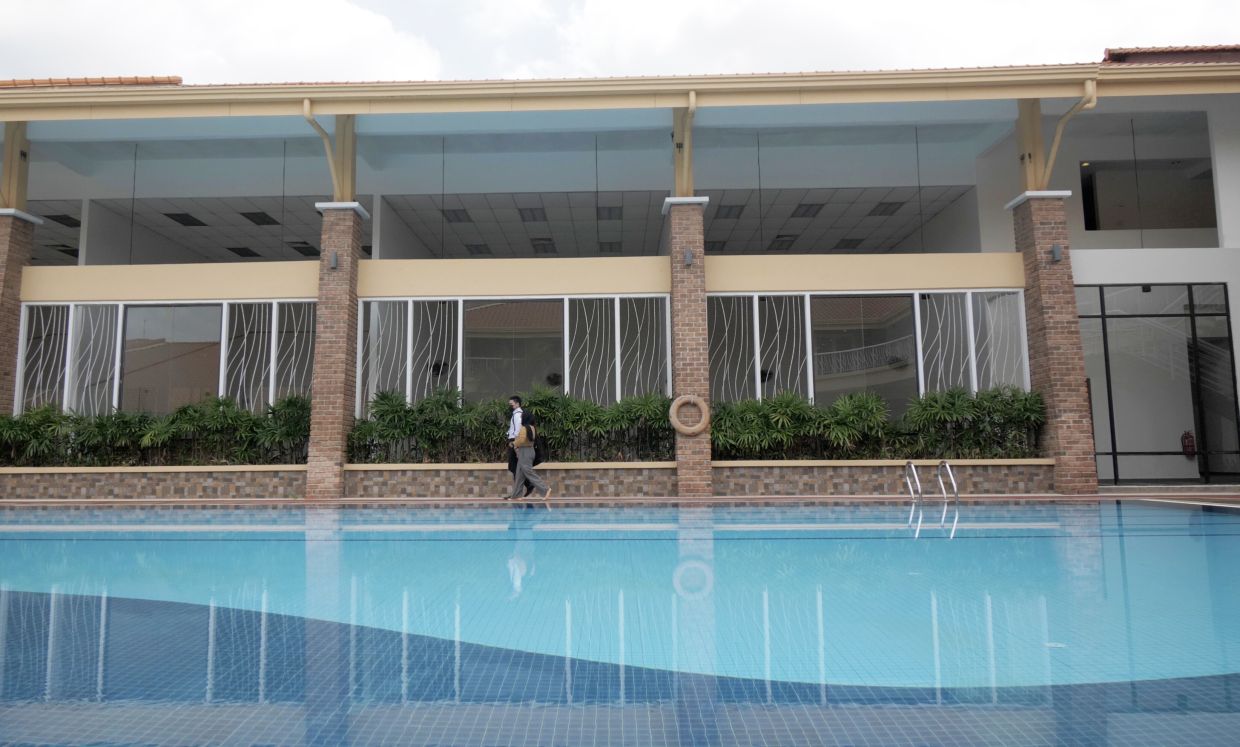'The most common risk factors for CVDs are uncontrolled blood sugar
levels (diabetics), hypertension and high cholesterol
(hypercholestrolaemia' - Dr Wan Azman.
“It has been estimated that CVD-related deaths will reach approximately 31,000 cases annually by 2025 if no concrete measures are put in place to reduce CVD rates,” said Dr Wan Azman, adding that this would form about 55% of all non-communicable diseases related deaths in the country.
With the arrival of Covid-19 in Malaysia in 2020, CVDs still formed a substantial part of deaths, with ischaemic heart diseases and cerebrovascular diseases combining to contribute 20.2% of deaths in 2022, as per the data from the Statistics Department.
“CVDs account for the largest share in costs for hospitalisation (47.77% or RM1.01bil) and medication (46% or RM792mil) compared to other non-communicable diseases, while resulting in annual productivity losses of approximately RM4bil,” said Dr Wan Azman.
He said the most common risk factors for CVDs are uncontrolled blood sugar levels (diabetics), hypertension and high cholesterol (hypercholestrolaemia)
While monitoring blood sugar and blood pressure are relatively straightforward things, monitoring one’s cholesterol level, especially levels of the “bad” cholesterol otherwise known as the low-density lipoproteins (LDLs), has proven to be more challenging, for a variety of reasons.
A person with high cholesterol has no symptoms, he said, adding that a comprehensive blood test was the only way to detect it.
“What makes it more complicating is that while a person’s total cholesterol (combination of high-density lipoproteins and LDL) count may be fine, the percentage of LDL in the total cholesterol count may have breached risky levels,” added Dr Wan Azman.
Health Ministry family medicine specialist consultant Dr Sri Wahyu Taher who was another member of the panel at the event said blood pressure (BP) and blood sugar could be measured easily in public health clinics or general practitioners or at retail pharmacies.
“Checking for cholesterol is not as easy as there is a need to draw a blood sample from the vein to be tested in the laboratory,” she said.
Typically, LDL testing are part of a lipid panel test (that measures total cholesterol, breakdown between HDL and LDL, as well as triglycerides) that are done in comprehensive health screenings.
The challenge includes disseminating information that cholesterol screening is readily available even at government health clinics.
“It is not necessary for a person to go to the hospital to get a cholesterol test done,” added Dr Sri Wahyu.
Many misconceptions about cholesterol, survey finds - The Star
GEORGE TOWN: Unhealthy lifestyles have led to people suffering from cardiovascular diseases (CVD), including heart attack and stroke, at a younger age.
Universiti Sains Malaysia (USM) family medicine specialist Dr Mastura Mohd Sopian said CVD among young people is mainly caused by high levels of low-density lipoprotein (LDL), commonly known as bad cholesterol.
“CVD is the leading cause for morbidity and mortality globally and Malaysians are not spared from it,” she said.
Aside from poor dietary habits, she said a largely sedentary lifestyle and stress have added to the increase in CVD and metabolic diseases.
“Too much fast food and processed food, which are cheaply available, are among the main reasons the younger generation has become more prone to these diseases,” she added.
The medical lecturer said to combat these diseases, prevention was better than cure.
Dr Mastura urged people to stick to healthy diets, and for those who smoke, to kick the habit.
She said one must move more and exercise often – as much as 30 minutes of moderate exercise every day or at least three days a week.
“We should all learn how to manage our stress, seek help and advice when needed and see the doctor yearly for a health screening,” she said, adding that getting six to eight hours of sleep each night was vital.
For those dealing with diabetes or other non-communicable diseases (NCD), Dr Mastura said these healthy habits were necessary to manage their condition.
She said the greatest visible indicator of being at risk of CVD was being overweight or worse, obese.
Public health expert Datuk Dr Zainal Ariffin Omar said too much food consumed by Malaysians now were laden with saturated and even trans fats.
This, he said, were among factors causing Malaysians, especially the younger generation, to be at risk of CVD.
Dr Zainal said it was important to maintain a healthy balance of cholesterol in the body by limiting their intake of saturated and trans fats.
LDL is the type of cholesterol that can cause build-ups and blockages in arteries that can lead to heart diseases and strokes.
Related stories:





 .
.

